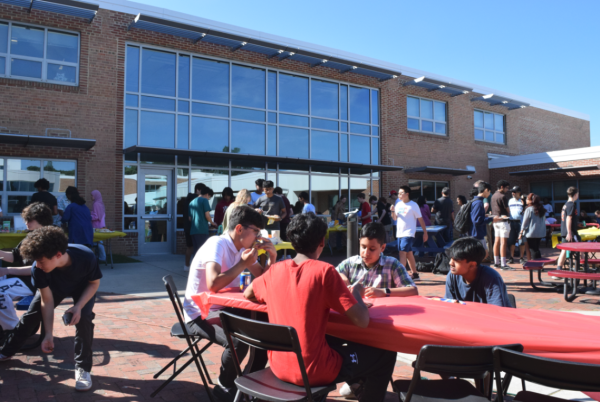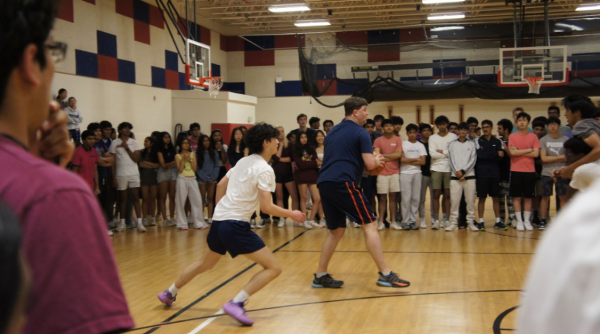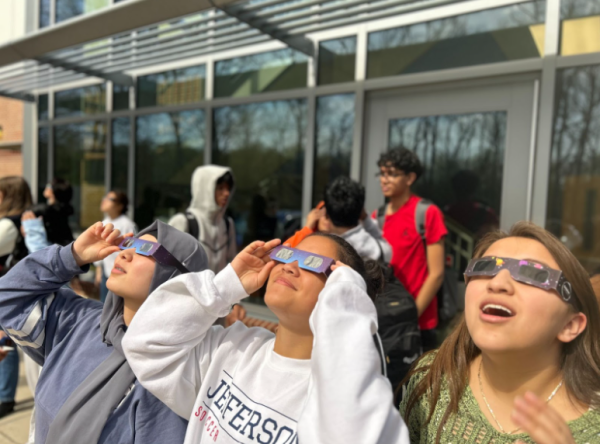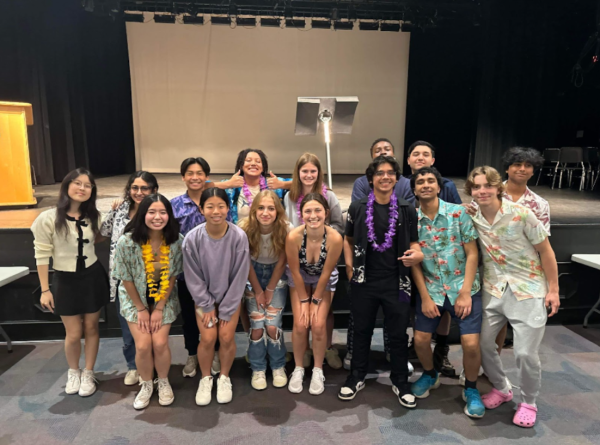SEL results indicate more anxiety but greater community
Taking the Social-Emotional Learning (SEL) screener, a student selects an answer to the question “During the past week, how often did you feel worried?” during advisory. “We still need to be mindful of student wellness,” Bonitatibus said. “The teenage years are a time that are fraught with self doubt and challenges. That always needs to be at the forefront, but in a post-pandemic world we know that the repercussions may be felt for several years to come. We can’t forget to keep a focus on wellness.”
March 11, 2023
On Monday, March 6, all Jefferson students took the Social-Emotional Learning (SEL) screener. Fairfax County Public Schools (FCPS) students in grades three to twelve take the SEL screener twice in a given school year, once in the fall and once in the spring.
The screener aims to help parents and teachers improve students’ self-awareness, self-management, social awareness, relationship skills, and responsible decision-making. The SEL screener asks students to react to certain prompts like “During the past week, how often did you feel worried?” and, “How confident are you that students at your school can have honest conversations with each other about race?” with “almost never,” “once in a while,” “sometimes,” “frequently,” or “almost always.”
“When I first came here to TJ, there were students who would say that things were so overly competitive that it was more cutthroat,” principal Ann Bonitatibus said. “We still live in a competitive world, but people are saying they’re able to approach their work, feel like that they have support, [and that] there’s more room for more collaboration.”
Jefferson’s fall screener results indicate an increase in community and a shift from high depression and stress levels to anxiety. According to the March email update, there was a 6% increase in students’ positive self-perception, an 8% increase in students’ positive feelings toward the school community, and a 14% increase in students’ feelings toward well-being and relationships when compared to last year’s results.
“One of the things that I was really pleased with is that we either maintained where we were on things from last spring or we increased,” Bonitatibus said. “That shows that some of the work that we’re doing [for] social-emotional learning is embedded. Hopefully it’s making a difference and over time, we’ll see student perceptions increase.”
Last fall, in 2021, only 35% of students felt supported in their well-being. This fall, that percentage increased to 48%. Depression results also decreased this year.
“Rather than stress or depression being the major drivers of things right now, which is what used to be the case, we’re [now] seeing anxiety cited,” principal Ann Bonitatibus said. “We triangulated [SEL screener] data with the Virginia climate survey that was administered to students last spring as well as one of our own internal survey surveys. We were able to come to the conclusion looking at multiple data sources that anxiety was now rising up more than just generalized feelings of depression, sadness, or loneliness.”
Jefferson staff members also indicate positive feedback, with 90% of faculty stating that other colleagues help create positive work environments and support one another. Further, the percentage of highly engaged staff members increased from 66% in the fall of 2016, to 68% in 2019, to 76% this year.
“I’m really proud that, as a school and where we are today, we have named and claimed and embrace the fact that student wellness and work overload are things at TJ and that we need to work on them,” Bonitatibus said. “We’ve made great progress because when I first came here, we didn’t talk about student wellness. Now, I believe that as a school community, we have destigmatized what it means to for students and their mental wellness and overall mental health.”

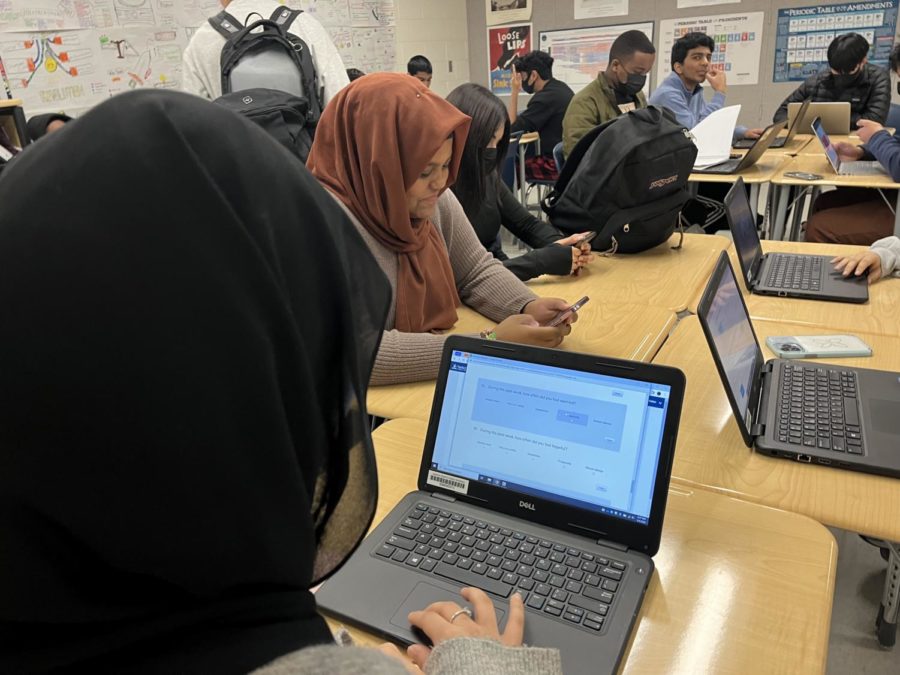
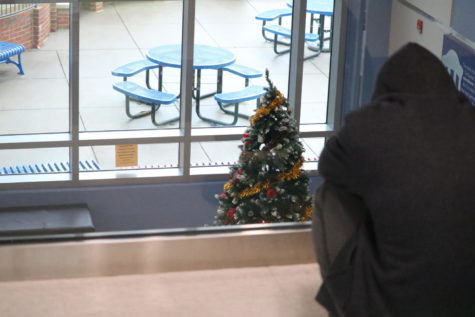
![Freshmen Anna Park and Xavier Reyes work together to program an arduino component in Design and Technology. The Naviance class rank hack threatens to disrupt part of the collaborative nature of the school. “There is a reason why FCPS [Fairfax County Public Schools] schools stopped using class rank previously,” assistant principal Cynthia Hawkins said. “Theres a danger in comparison and a danger in ranking.”](https://www.tjtoday.org/wp-content/uploads/2022/11/IMG_9938-475x317.jpg)


![Freshmen Anna Park and Xavier Reyes work together to program an arduino component in Design and Technology. The Naviance class rank hack threatens to disrupt part of the collaborative nature of the school. “There is a reason why FCPS [Fairfax County Public Schools] schools stopped using class rank previously,” assistant principal Cynthia Hawkins said. “Theres a danger in comparison and a danger in ranking.”](https://www.tjtoday.org/wp-content/uploads/2022/11/IMG_9938-300x200.jpg)









